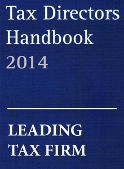
New requirements for Estonian Cryptocurrency Licenses in 2022 (PART II)
New definitions of virtual asset service providers
The new legislation will directly adopt the definitions of VASPs provided by Financial Action Task Force (FATF) in its Updated Guidance for a Risk-Based Approach to Virtual Assets and Virtual Asset Service Providers. The new definition of a virtual asset service provider includes virtual asset (virtual currency) transfer services and services related to issuing virtual assets. This includes virtual asset brokerages, order-to-book exchanges and other intermediaries as well as platforms facilitating Initial Coin Offerings (ICOs). However, the new definition does not necessarily include entities who conduct an ICO. Decentralized applications (dApps) can fall under the new definition depending on whether users have a business relationship, which include relationship established by smart contracts with the owners, developers or managers of a decentralized application. Developers, owners or other persons who benefit monetarily from such applications could also be considered obliged entities as VASPs. None of these services will be banned, but entities who wish to provide such services in Estonia must comply with AML/CFT rules.
Estonia will also be one of the first jurisdictions to fully comply with the technical guidance of FATF, which is an international standards body for Anti-Money Laundering/Combating the Financing of Terrorism (AML/CFT), on virtual assets and virtual asset service providers.
In the last two parts we examined the aim and scope of the new legislation regarding VASPs. In the next part we will discuss the new requirements for establishing Estonian Cryptocurrency licenses in more detail.
To find out more about requirements for crypto companies and cryptocurrency licenses in Estonia, please refer to our Baltic lawyers at info@gencs.eu








